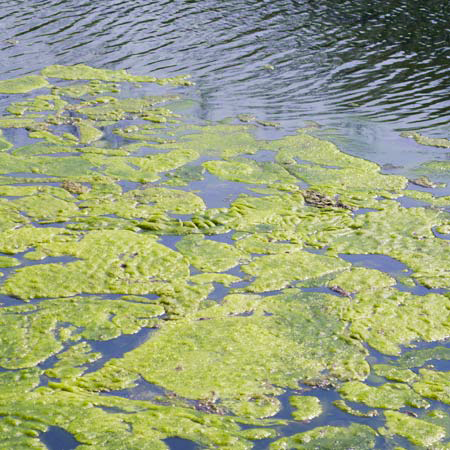
Recently, officials in the Fort Worth area sought to
reassure people whose tap water has a foul, earthy
taste that it is safe to drink and odd flavor is the result
of a naturally occurring process.
You would be hard-pressed to find a Texan who hasn’t
experienced a glass of water with this less than palatable
flavor and aroma. Assuming all water
regulations are met, the water is indeed safe to drink.
But what is behind that funky taste?
The culprit is a harmless substance that can be found
all around us. The woody, musty, earthy taste
sometimes found in drinking water is a byproduct of
blue-green algae. When the micro-organisms end their lifecycle they emit an oily substance called geosmin,
which has a distinctive earthy taste that humans can detect in even small concentrations. While this added
flavor in drinking water can be annoying, it poses no health hazard.
In the recent North-Texas case, officials said the lakes that fed the water supply in question had experienced a
high amount of algae growth. The major winter weather in early January killed a significant amount of algae,
which then produced geosmin.
Naturally-based taste and odor problems have plagued water utilities for years. Utility operators have tried
numerous methods to control or minimize the intensity of taste and odor. However, as they say, an ounce of
prevention is worth a pound of cure. The best way to eliminate taste and odor issues is to prevent the
formation of the organisms that cause the problem. One answer is using watershed management strategies
that limit the use of nutrients that feed algae in areas surrounding certain water bodies.
For example, when one uses more than the manufacturer suggested
amount of fertilizer on a lawn, the excess can wash
into streams during heavy rains. The fertilizer now provides
nutrients to the algae growing in the lake. The alga begins to
bloom and the taste of the local water changes.

Devices especially made for the home such as water-filtering
pitchers or filters attached directly to the faucet may help
remove some of the taste and odor. Keeping drinking water
cooled also reduces the taste’s intensity.
If you are interested in further exploring issues related to water
quality, check out the “Water School” section of Brazos River
Authority’s website. There you can also find articles on a wide
variety of water-related topics ranging from “Can I put grease
down my sink,” to “Who owns Texas water?” To check it out,
please click here.